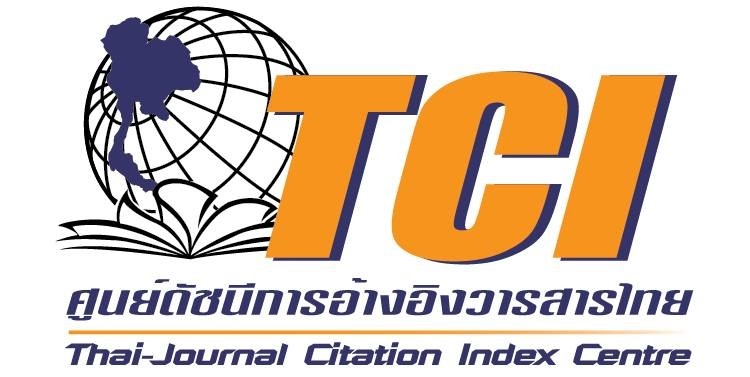Developing strategic management guidelines for solutions on student pressure of Gannan University of Science and Technology, China
คำสำคัญ:
solutions, student pressure, strategic managementบทคัดย่อ
This article aimed: 1) to investigate the problems of pressure management of university students in Gannan University of Science and Technology, 2) to investigate the needs of pressure management of university students in Gannan University of Science and Technology, and 3) to construct strategic management guidelines for solutions on student pressure in Gannan University of Science and Technology. The sample group utilized in this study consists of students from Gannan University of Science and Technology, with a total of 385 students surveyed through stratified random sampling. The research instrument employed was a questionnaire survey. The data were analyzed using frequency, percentage, mean, and standard deviation. The research revealed the following findings: Students at Gannan University of Science and Technology significantly elevated their pressure management problems and needs. We have divided the strategic guidelines for pressure management of Chinese university students into six modules: 1) Identify and understand precursors. 2) Investigating the Causes of pressure. 3) Investigate how survey pressure affects students. 4) Identify strategies for providing relief. 5) Watch for signs that students need help. 6) Know where to go for help. To sum up, it is of great significance to help university students correctly understand pressure, effectively manage and relieve it, and improve their overall mental health. By helping university students understand the pressure and providing them with ways to relieve the pressure, we can help them successfully achieve a state of physical and mental balance from the state of pressure, guide university students to choose positive coping ways in the face of pressure, and maintain mental health.
เอกสารอ้างอิง
Abouserie, R. (1994). Sources and Levels of Stress in Relation to Locus of Control and Self Esteem in University Students. Educational Psychology, 14(3), 323-330. https://doi.org/10.1080/0144341940140306.
Amanvermez, Y., Zhao, R., Cuijpers, P., de Wit, L. M., Ebert, D. D., Kessler, R. C., Bruffaerts, R., & Karyotaki, E. (2022). Effects of self-guided stress management interventions in college students: A systematic review and meta-analysis. Internet Interventions, 2022(28), 100503.
Auerbach, R. P., Mortier, P., Bruffaerts, R., Alonso, J., Benjet, C., Cuijpers, P., ... & Kessler, R. C. (2018). WHO world mental health surveys international college student project: Prevalence and distribution of mental disorders. Journal of abnormal psychology, 127(7), 623.
Bai, Y. Q. (2014). Research on the relationship between psychological stressors, coping styles and mental health of college students in judicial police schools. (Master's thesis, Central China Normal University),
Beiter, R., Nash, R., McCrady, M., Rhoades, D., Linscomb, M., Clarahan, M., & Sammut, S. (2015). The prevalence and correlates of depression, anxiety, and stress in a sample of college students. Journal of affective disorders, 173, 90-96.
Bruffaerts, R., Mortier, P., Kiekens, G., Auerbach, R. P., Cuijpers, P., Demyttenaere, K., & Kessler, R. C. (2018). Mental health problems in college freshmen: Prevalence and academic functioning. Journal of affective disorders, 225, 97-103.
Cohen, S., Murphy, M. L., & Prather, A. A. (2019). Ten surprising facts about stressful life events and disease risk. Annual review of psychology, 70(1), 577-597.
Eisenberg, D., Golberstein, E., & Hunt, J. B. (2009). Mental health and academic success in college. The B.E. journal of economic analysis & policy, 9(1) 40. https://doi.org/10.2202/1935-1682.2191.
Folkman, S., Lazarus, R. S., Gruen, R. J., & DeLongis, A. (1986). Appraisal, coping, health status, and psychological symptoms. Journal of Personality and Social Psychology, 50(3), 571–579. https://doi.org/10.1037/0022-3514.50.3.571
He, A., Wan, J., & Hui, Q. (2022). The Relationship between Mobile Phone Dependence and Mental Health among Adolescents: The Mediating Role of Academic Burnout and the Moderating Role of Coping Styles. Best Evidence in Chinese Education, 12(1), 1581-1587.
Higgins, C. A., Duxbury, L. E., & Irving, R. H. (1992). Work-family conflict in the dual-career family. Organizational Behavior and Human Decision Processes, 51(1), 51-75.
Jiang, L., Chen, J., & Qin, W. Q. (2012). The Relationship between College Students' Stress Situations and Cognitive Lapse. Social Psychological Science, 27(11).
Jing, Q., Fu, A. G., and Du, J. (2015). Investigation and Research on the Current Situation of College Students' Psychological Stress in Hainan Province, Chongqing Medicine, 44.
Karyotaki E, Cuijpers P, Albor Y, Alonso J, Auerbach RP, Bantjes J, Bruffaerts R, Ebert DD, Hasking P, Kiekens G, Lee S, McLafferty M, Mak A, Mortier P, Sampson NA, Stein DJ, Vilagut G & Kessler RC (2020). Sources of stress and their associations with mental disorders among college students: results of the world health organization world mental health surveys international college student initiative. Frontiers in psychology, 11, 1759. doi: 10.3389/fpsyg.2020.01759.
Leppink, E. W., Odlaug, B. L., Lust, K., Christenson, G., & Grant, J. E. (2016). The young and the stressed: Stress, impulse control, and health in college students. The Journal of nervous and mental disease, 204(12), 931-938.
Li, H. (2017). A comparative study of stress, coping styles, and social support among college and graduate students. Master's thesis, Central China Normal University.
Liu, Z. P. (2017). The relationship between psychological stress and brain structure of college students: the mediating role of neuroticism and extroversion. Master's thesis, Southwest University.
Li, J., & Zhang, H. C., (2022). Investigation and Research on the Psychological Stress of College Students in Inner Mongolia, Journal of Chifeng University: Natural Science Edition, 38(12).
Ma, C. & Wang, X. (2024). The effects of psychological capital on stress perception in college students: the mediating effect of cognitive reappraisal and the masking effect of expression inhibition, Chinese Journal of Health Psychology, 32(01),
Mortier, P., Cuijpers, P., Kiekens, G., Auerbach, R. P., Demyttenaere, K., Green, J. G., Kessler, R. C., Nock, M. K., & Bruffaerts, R. (2018). The prevalence of suicidal thoughts and behaviours among college students: a meta-analysis. Psychological Medicine, 48(4), 554-565. doi: 10.1017/S0033291717002215.
Murray, H. A., & McAdams, D. (1938). Explorations in Personality. New York: Oxford University Press.
Salzer M.S. (2012). A comparative study of campus experiences of college students with mental illnesses versus a general college sample. J. Am. Coll. Heal, 60(1).
Selye H. (1956). The stress of life. New York: Mc Graw Hill.
Selye H. (1974). Stress without Distress. Lippincott: Williams & Wilkins.
Shi, G.Y. (2013). Stress, Emotion and Resilience in College Students. Chinese Journal of Mental Health, 27(9).
Song, Y. J., & Ma, C. X., (2021). The Impact of College Graduates' Coping Personality on Employment Stress in the Context of the Novel Coronavirus Pneumonia Epidemic: The Parallel Mediating Role of Coping Styles, Journal of Yellow River Institute of Science and Technology, 23(4).
Sussman, S., & Arnett, J. J. (2014). Emerging adulthood: developmental period facilitative of the addictions. Evaluation & the health professions, 37(2), 147-155.
Xiong, W. (2015). A study on the psychological stress of college students in Inner Mongolia University of Science and Technology and its coping style. University of Hong Kong.
Xu, M. X. (2016). A study on the relationship between self-control and psychological stress among college students: A case study of Anhui Normal University. Journal of Xichang University: Natural Science Edition, 30.
Yamane, T. (1973). Research Methodology/Sample Size. Florida: University of Florida.
Yang, D. (2015). The Effect of Stress on College Students' Loneliness: A Study on the Mediating Effect of Self-Differentiation and Self-Construct Moderation. Master's thesis, Shaanxi Normal University.
Yang, Q. (2016). Stress and subjective well-being in college students: the mediating role of psychological capital and the moderating role of social support. Master's thesis, Sichuan Normal University.
Zhang, G. Y. (2016). The relationship between life stress, psychological resilience and learning adaptation of college students in Tibet. Master's thesis, Tibet University.
Zhang Y.M. & Liu G.H. (2021). The relationship between stress and mental health of college students: the mediating role of mental resilience, Chinese Journal of Health Psychology, 29(1).
Zhu, H., Feng, K., Wang, Y., Xu, T., Yang, G., Yang, C., Zhang, S., & Han, W. (2023). A study on the depression, anxiety, and stress status of college students based on sampling survey. Journal of Baotou Medical College, 39(10), 69-75. https://doi.org/10.16833/j.cnki.jbmc.2023.10.014.
ดาวน์โหลด
เผยแพร่แล้ว
รูปแบบการอ้างอิง
ฉบับ
ประเภทบทความ
สัญญาอนุญาต
ลิขสิทธิ์ (c) 2025 Journal of Public and Private Issues

อนุญาตภายใต้เงื่อนไข Creative Commons Attribution-NonCommercial-ShareAlike 4.0 International License.









